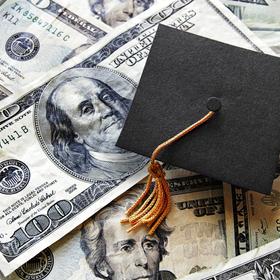Beginning the school search process is a lot of fun. Those beautiful photographs of tree-lined campuses and sports activities, the candid shots of classroom scenes portraying kind, patient teachers, the history of the school and its many accomplishments over the years, as well as all those famous graduates - it is all very impressive. So, you list the schools you want to examine in greater detail. At this point in your school search process, the question that I posed in the title of this article begins to surface.
I can hear you wondering how you will compare schools objectively when the costs seem so different from one school to the next. One boarding school charges $56,000 for tuition, room and board, while another school in the same state lists its tuition, room and board as $28,000. Why do some schools cost so much and some cost so little?
Boarding schools
Your costs for schools that charge the most for their services range from $45,000 to $65,000. These schools are residential schools or what we commonly call boarding schools. As well as charging for tuition and related expenses, these schools must bill for room and board. You will notice that some schools offer two types of boarding arrangements. One is the customary seven-day-a-week boarding; the other is a five-day boarding scheme where the students reside at the school during the week and return home on the weekends. The five-day boarding scheme costs less than the seven-day version. It is also worth noting that most boarding schools offer grades nine through twelve. Some schools also offer a post-graduate year or grade thirteen. There is a handful of junior boarding schools which provide grades six through eight.
Day schools
On the other end of the scale are day schools. These schools have to charge for everything except room and board. Students attend school Monday through Friday during the day. Many schools also set aside Saturday mornings for sports. Because day schools are not residential, your child lives at home. For example, you can expect to pay $28,000 to $34,000 for a day school offering high school grades in the Boston area.
Parochial day schools cost much less than other private day schools. I define a parochial school as a school in which a religious group operates. For example, the diocesan high school in Raleigh, North Carolina, Cardinal Gibbons High, charges $14,810 for non-Catholics and $10,8100 for Catholic students for the academic year 2018-2019.
Of all the denominations, the Roman Catholic Church operates the most day schools. Other religious denominations which operate religious schools include African Methodist Episcopal, Amish, Assembly of God, Baptist, Brethren, Calvinist, Christian, Church of Christ, Church of God, Church of God in Christ, Church of the Nazarene, Disciples of Christ, Episcopal, Friends, Greek Orthodox, Islamic, Jewish, Latter Day Saints, Lutheran Church - Missouri Synod, Evangelical Lutheran Church In America, Wisconsin Evangelical Lutheran Synod, Other Lutheran, Mennonite, Methodist, Pentecostal, Presbyterian, and Seventh-Day Adventist. All told approximately 21,000 religious schools were operating in the U.S. in the 2011-12 academic year. What about non-sectarian schools? There were about 9,700 schools which did not have any religious affiliation.
I listed all the various denominations because I wanted you to have a clearer idea of your many options in selecting a school for your child. Another point is that religious schools operated by various religious orders are typically more expensive than parochial schools. Kadima Day School in West Hills, California, charges $15,200 for the academic year 2018-2019 for grades 6-8.
Here is a quick look at what Kadima Day School offers.
Next, let's examine some of the reasons why some schools charge less than others.
Shared facilities
Most parochial schools tend to charge less for their services because they share facilities with the parish or religious organization that is sponsoring them. The physical plant is always a significant expense for schools. Being able to use existing buildings and grounds reduces the amount of initial capital required to establish a school. Ideally, the school will, at some point, pay rent to the sponsoring entity and pay for utilities and maintenance. Because these schools have significantly lower operating costs, they can and do charge less tuition and associated fees than independent private schools.
Limited endowments
Think of endowments as an institution's savings account. As a rule, the more significant that savings account is, the more funds available for various expenses, including financial aid. Most private schools exercise prudence with their endowments, preferring to spend income instead of drawing down the principal. Fundraising is an ongoing process at every private school to keep the doors open and costs as reasonable as possible.
Specialized instruction
Private schools which offer special instruction have to charge more for tuition. The school faculty and staff catering to students with learning differences and special needs are highly credentialled and experienced professionals whose skills are in great demand. The student-to-teacher ratio is the other factor that tends to raise costs dramatically. Classes in special needs schools are small. In many cases, some of the teaching will be done on one. That is one of the reasons these specialized schools are so successful. They can perform a service that is extremely hard to find in most markets. I know this firsthand because my eldest son had difficulty reading. After four semesters in a special needs school with hour after hour of one-on-one instruction from a gifted specialist, he could read at his grade level. This brief video illustrates the individual attention students at a specialized school receive.
Class size
Larger class sizes will help keep costs down. The same is true of lower teacher salaries. While having your child in a parochial school in a class of thirty students is better than having her in a public school with forty students, be aware that there are private schools that limit their class sizes to fifteen students. You can move much more quickly with fifteen students in your class than you can with thirty or forty. Why should your child be able to hide in the back of the course? The following video shows the advantage of sending your child to a school where everybody knows her.
Many factors drive the cost of tuition in private schools. As you evaluate schools on your shortlist, whether parochial or independent, look for well-run schools. Professional management and administration will be the engine that keeps excellent academics in place. Parents and teachers alike want the best for their students. The well-run school makes that happen.
Finally, you might want to look at free schools. One of these fine schools could be the school which meets your requirements.
Questions? Contact us on Facebook. @privateschoolreview














